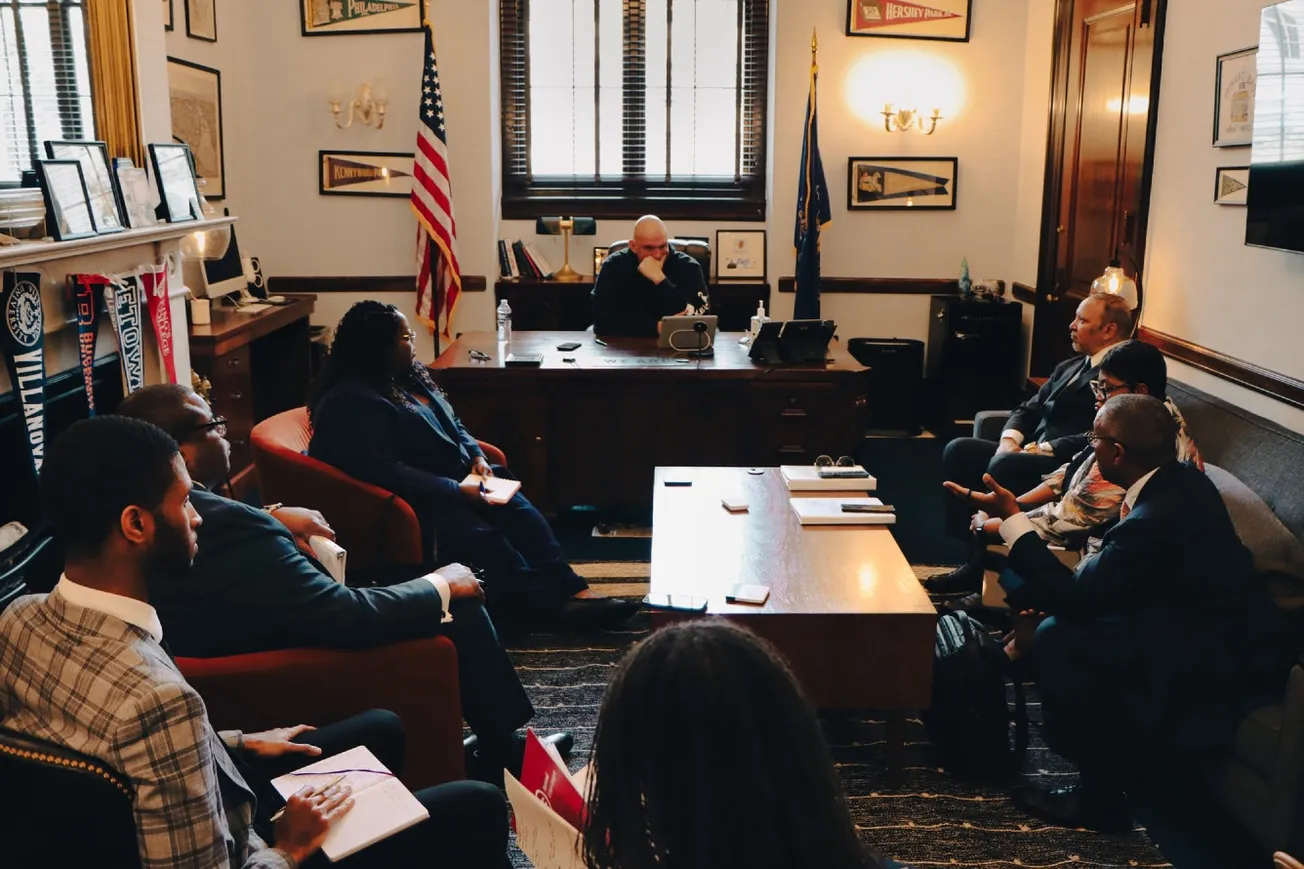Is the current debate over the federal budget a topic of concern for faithful Christians?
What wisdom does Christian theology impart upon this messy fiscal process?
Well for starters, budget debates in Washington mostly focus on purely commercial objectives. For most liberals, the agenda tilts toward their vision of “equity,” which is really just a more palatable term for communism. For conservatives, the process normally only involves a fixation on topline growth…the highest possible national GDP, regardless of the social consequences.
Of course, the Christian worldview demands more -- and commands a difference.
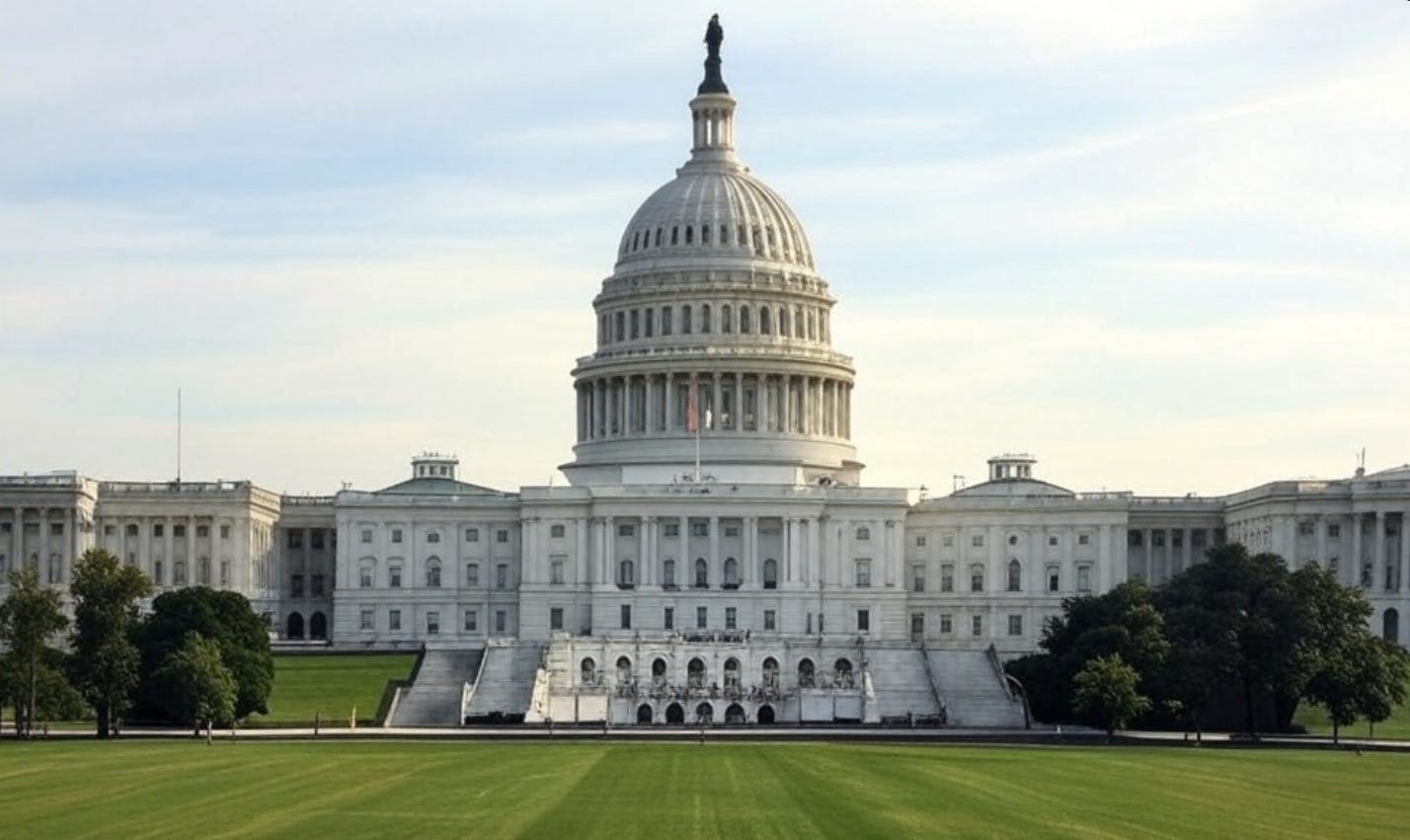
We reject statism entirely and recognize, more than most, the threats posed by an all-encompassing state that not only stifles economic opportunity, but also represses the soul through the false god of secular progressivism.
Concurrently, we must do better than the cold mercantilist approach that diminishes human beings into mere cogs in an economic machine that seeks maximum output, regardless of the fallout for communities and families.
For Catholics in particular, we take direction from the seminal Church teaching on this subject of economics, Rerum Novarum. Pope Leo XIII taught that private ownership of enterprise “is not only lawful, but absolutely necessary.” He also praised the dignity of work, in language later channeled through Pope John Paul II in his related encyclical, Laborem Exercens, extolling the wonder of creative work that honors the ultimate Creator, God himself.
The current populist moment in America also flows from a pro-worker perspective, and this movement comes to power primarily because of economic circumstances. Globalist crony capitalism has worked amazingly well for the credentialed ruling class of society. Bu the working-class masses know they have been left behind by a crooked system, and they vote accordingly.
The power centers of America – from New York newsrooms to elite faculty university lounges to cooperate C suites – they all still grapple with this new reality of an ascendant America First movement. Most of the powerbrokers that run those entities still cannot fathom why the working-class masses rally so fervently to an agenda of populist nationalism.
In this regard, those same potentates reveal their lack of understanding of Christian principles. After all, followers of Jesus have, for time immemorial, prioritized the success and prosperity of families and communities, not multinational conglomerates. We pay homage to the precepts of economic subsidiarity, as explained so eloquently by GK Chesterton. A vibrant society needs decision-making and economic power dispersed throughout the land. In comparison, efficiency studies from Harvard Business School ring hollow.
This philosophy does not seep into the tyranny of socialism, as Austrian economics adherents might suggest. Instead, this authentic Chirstian approach to the economy will always prioritize private enterprise, while concurrently insisting that public policy be ordered toward the common good, rather than toward maximum efficiency that rewards a connected few.
To get specific, families and small businesses have been utterly crushed by the punishing inflation of the Joe Biden era. That view is not my opinion, but in fact the dismal reality, as expressed in substantive polling. For example, the latest poll my organization conducted - of Wisconsin voters - revealed that 60% of heartland voters say that Bidenomics “hurt their families” vs. only 29% who report that it “helped their families.”
Thankfully, the same poll reveals a newfound sense of optimism since Trump’s election, with Wisconsin young adults (age 18-24) growing “more confident” on the economy by a wide 56-29% margin.
Those same young adults face economic hurdles that were unknown to their parents and grandparents. Home ownership seems impossible to these young Americans, which is not surprising given the worst housing affordability ratios in all US history.
No wonder these young adults recoil and turn away from marriage and parenthood. There are other cultural, religious, and non-financial forces in play, of course. But the economic incentives are presently stacked firmly against family formation, in direct contravention to Christian values.
For people like me who are middle aged or older, we recall nostalgically a society where middle class families could thrive on a single income. Is that scenario even possible today? Not for the masses, no way!

Regarding those issues, as Americans, we respect the full right of all citizens to make crucial life decisions on their own volition, regarding marriage, children , and relationships. Liberty means that citizens may pursue happiness as they please.
Concurrently, as Christian citizens, we must insist upon policies that prioritize strong, stable families. We must also embrace distributivism, and policies that foster a diffusion of economic power.
In this regard, tackling stifling inflation represents an absolute economic north star. Runaway prices crush families’ budgets and sap spirits. Entrenched successful people and corporations can handle inflation and, in many cases, even benefit from it. But for the working-class masses, inflation kills prosperity and siphons the dynamism of free enterprise from Main Street.
In this sense, the budget wrangling is about more than simply numbers. Rather, it unfolds partly as a spiritual battle, one that requires the activism of the faithful. We can make certain that the America First movement achieves a long talked-about agenda that finally reins-in runaway government, and compels a return to fiscal sanity.
Such reforms would whip inflation and help lead to the kind of society we want – a place where families thrive, small businesses blossom, and the common good becomes paramount.
Steve Cortes is founder of the League of American Workers and senior political advisor to Catholic Vote. He was former senior advisor to President Trump and JD Vance – and also former commentator for Fox News and CNN.
Original article links: RealClearPolicy Patria with Steve Cortes
TIPP Takes
Geopolitics, Geoeconomics, And More
1. President Trump: “That’s Going To Be The Next Thing You’ll Be Talking about…What’s Going To Happen With Iran? TIPP Insights
That’s going to be the next thing you’ll be talking about…What’s going to happen with Iran?

And, there’ll be some interesting days ahead, that’s all I can tell you…we’re down to FINAL STROKES with Iran…that’s going to be an interesting time…we’re down to the FINAL MOMENTS.
2. EU Summit On Ukraine: Europe Seems Ready To Spend On Defense -D.W.
EU leaders hunkered down on Thursday night to discuss how to massively boost their defense spending and how to help Ukraine after the U.S. suspended military and financial aid, as alarming developments from the outside world continued to pile up.
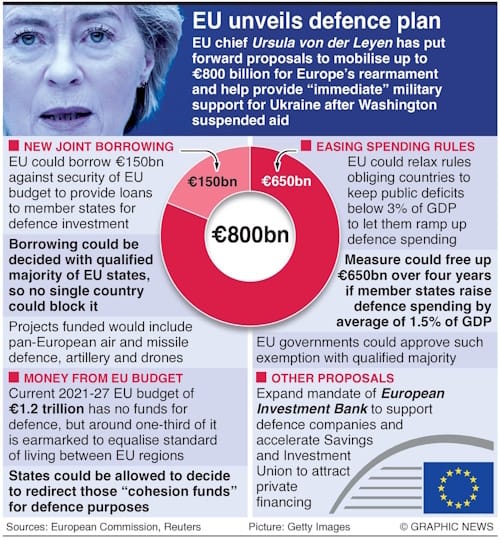
Russia's Foreign Ministry snubbed a ceasefire proposal backed by Ukraine, France, and Britain in recent days, and the Kremlin accused French President Emmanuel Macron of warmongering. Macron had tried to stir debate about whether French nuclear weapons could serve as a deterrent for other EU countries as the U.S., which has around 100 warheads stationed in the bloc, disengages.
3. U. S. Officials Planning To Meet With Ukrainian Counterparts In Saudi Arabia - Politico
Special envoy Steve Witkoff, who confirmed that planning was underway, will join Secretary of State Marco Rubio and national security adviser Mike Waltz in the U.S. delegation.
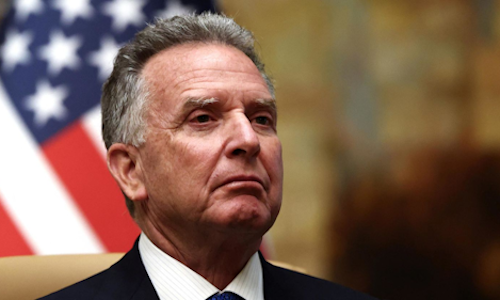
“The idea is to get down a framework for a peace agreement and initial cease-fire,” Witkoff told reporters outside the White House. Ukrainian leader Volodymyr Zelenskyy confirmed the meeting on X, reiterating that “Ukraine is most interested in peace.”
4. China Warns Japan Not To Interfere In Taiwan Affairs - Kyodo News
China's top diplomat Wang Yi warned Japan not to interfere in affairs related to Taiwan, saying that would only "invite trouble" for itself even as bilateral relations have recently shown signs of improvement.

"To provoke trouble in the name of Taiwan is to invite trouble for Japan," the top diplomat warned, referring to a claim that "a contingency for Taiwan would also be a contingency for Japan," which was upheld by the late Japanese Prime Minister Shinzo Abe.
5. AI Chip Output In U.S. To Surge On Taiwan, South Korea Investment - Nikkei Asia
After drawing investment from Taiwanese and South Korean chipmakers, the U.S. is forecast to account for just over 20% of the global output of advanced semiconductors used in applications such as artificial intelligence in 2030.

TrendForce forecasts that the U.S. will house 22% of global production capacity for advanced logic semiconductors in 2030, double the 2021 figure, with Taiwan Semiconductor Manufacturing Co. driving the rise.
6. The Next DeepSeek? Startup Manus Becomes China's Latest AI Darling - Nikkei Asia
Excitement is mingling with skepticism as Chinese tech companies that hope to be seen as "the next DeepSeek" roll out one artificial intelligence breakthrough after another.
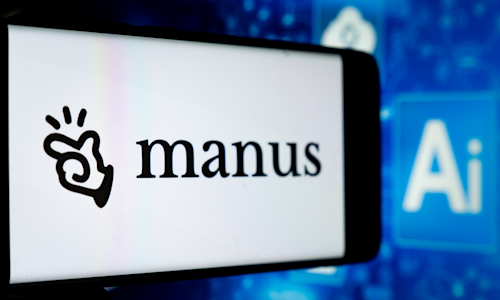
In one of the most recent examples, early access codes for Manus AI are reportedly changing hands for thousands of dollars amid a frenzy of online interest in the app. Manus AI claims to have realized the world's "first universal AI agent" that can do everything from screening resumes to researching real estate and analyzing stocks.
7. Mexico To Review China Tariffs In Potential Win For Trump - Bloomberg
Mexican President Claudia Sheinbaum said her country would review tariffs on Chinese shipments, a move that could give the Trump administration a win in its push to build a “Fortress North America” that blocks shipments from the Asian nation.
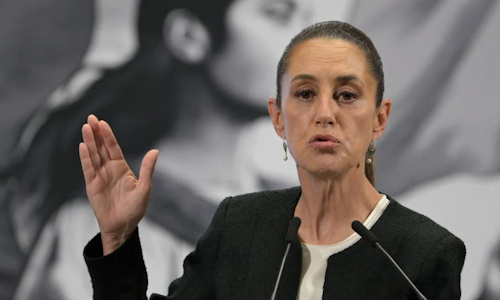
Sheinbaum pointed to Mexico’s problems in textile and shoe production, saying: “Much of the entry of Chinese products into Mexico caused this industry to fall in our country.” Earlier, President Trump offered major reprieves to Mexico and Canada, by exempting goods from those nations that are covered by the North American trade agreement known as USMCA from his 25% tariffs.
8. Vietnam Receives 6 New Czech Aircraft As It Seeks To Rely Less On Russia - RFA
Czech manufacturers Aero Vodochody and Omnipol have completed the delivery of six L-39 Skyfox training aircraft to the Vietnamese air force, Aero Vodochody said.

Vietnam – the first foreign customer for the aircraft – had already received the first batch of six aircraft last August. It now has a fleet of 12 advanced jet trainers that can also operate as light combat aircraft. In order to modernize and strengthen its air force to deal with rising security challenges, Vietnam has been looking to buy planes and equipment from countries other than traditional partner Russia.
9. UK Journalist Who Blew Whistle On BBC Gaza Documentary: ‘I Caught Them In Bed With Hamas' - Times Of Israel
David Collier, who swiftly revealed the film’s narrator to be ‘Hamas royalty,’ believes the episode could be a turning point for an outlet perennially accused of anti-Israel bias.

10. Israel Reportedly Frustrated U.S. Having Direct Talks With Hamas - Al Arabiya
Israel tried to convince the Trump administration not to open direct talks with Hamas, according to a report published, with at least one phone call between a top aide to Prime Minister Benjamin Netanyahu and a senior U.S. diplomat turning heated.
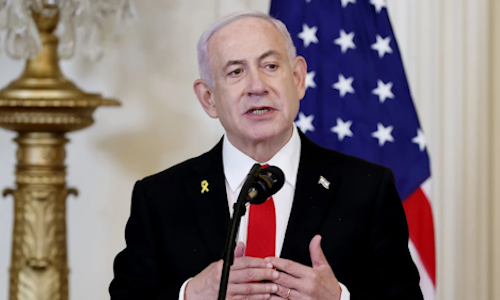
The report characterized the call as a “difficult” one, with the Israeli official voicing frustration with the U.S. making any proposals on the Gaza war without Israel’s approval.
11. World’s ‘Largest Online Black Market’ Loses Banking License - RFA
The National Bank of Cambodia confirmed this week that Huione Pay, the banking arm of what’s been called the world’s “largest ever illicit online marketplace,” has been stripped of its banking license.

The company is part of the wider Huione Group of Cambodia, a conglomerate which operates several “Huione” products, including marketplaces, banking and finance apps. One of these, a Telegram marketplace, has been identified as a notorious place for crime tied to up to $24 billion in illicit transactions.
12. Donald Tusk Announces Military Training Plan For All Polish Men - BBC
Prime Minister Donald Tusk told the Polish parliament, the Sejm, that efforts are being made to "prepare large-scale military training for every adult male in Poland."

Tusk pointed out that Ukraine was invaded after it got rid of its own nuclear arsenal, adding Warsaw would like to acquire its own nuclear weapons, however remote a possibility that may be. Poland is already planning to spend 4.7% of its economic output on defence this year, the highest proportion in the NATO alliance.
13. European Central Bank Cuts Rates Again, Says Policy Is Becoming ‘Meaningfully Less Restrictive’ - CNBC
The ECB cut its deposit facility rate, its key rate, to 2.5% on Thursday — a move that markets had widely priced in before the announcement.
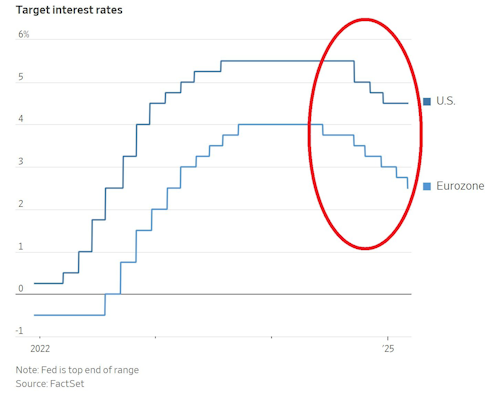
The central bank also updated the language in its decision to say monetary policy was becoming “meaningfully less restrictive.”
This change from the ECB’s January comments — when the central bank was still characterizing monetary policy as “restrictive” — has been interpreted as a hawkish shift.
14. N. Korea Warns S. Korea, U.S. Will Pay 'Horrible Price' Over Next Week's Joint Military Drills - Yonhap
North Korea threatened that South Korea and the United States will pay a "horrible price" for their joint military exercise slated for next week, saying the drills will soon bring a "storm" that deteriorates the security situation on the Korean Peninsula.
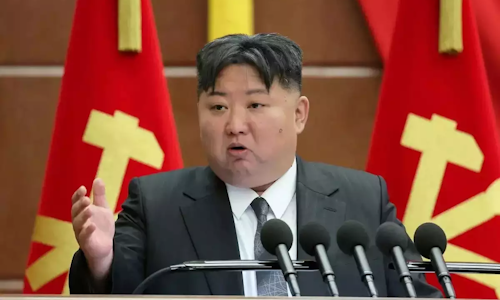
The North's warning came a day after the militaries of the allies announced that the annual Freedom Shield exercise will kick off Monday for an 11-day run, involving computer-simulated drills and on-field training.
15. Japan Ready To Declare End To Deflation, Economy Minister Says - Reuters
The remark by economy minister Ryosei Akazawa highlights the government's optimism over the economic outlook, which could affect the timing of the Bank of Japan's next interest rate hike.

While inflation has remained above the central bank's 2% target for nearly three years, the government has yet to officially declare an end to Japan's "deflation," which it defines as more a prolonged period of economic stagnation where slow wage growth keeps consumption subdued.
16. Denmark's National Postal Service To Stop Letter Carrying - UPI
Sending and receiving letters in Denmark will suffer greatly by 2026, as the country's national postal service will stop letter deliveries when 2025 ends.

The Nordic nation has had a national postal service since 1624, but the current state-run postal service, PostNord, says that due to a 90% drop-off in letter volume since 2000, it's ending its letter-carrying services. As a result of the change, more than a thousand workers will lose their jobs.
17. U.S. To Audit Any Bitcoin Reserve Holdings, White House Says - Bloomberg
According to White House crypto czar David Sacks, one of the first steps after the establishment of a U.S. strategic Bitcoin Reserve and a separate stockpile of other digital assets will be an audit of the government's holdings of cryptocurrency.

Sacks told Bloomberg TV in an interview that the U.S. had obtained around 400,000 Bitcoin over the past decade, largely due to tokens seized in relation to criminal and civil litigation. Sacks said the government still has around half of that sum.
18. Music Therapy Soothes Depression In Dementia Patients, Studies Show - HealthDay News
Findings suggest that music-based therapy probably improves depressive symptoms and might even improve behavioral issues by the end of treatment, researchers reported.

"Care home managers should consider integrating structured musical sessions as part of a person-centered approach to dementia care," said lead investigator Jenny van der Steen. Researchers added more studies are needed into the long-term effects of music therapy, particularly in community settings outside care homes.
19. Butter A Deadly Delight Compared To Plant Oils, Study Says - HealthDay News
Researchers found that people who eat a lot of butter have a higher risk of premature death, while those who use mostly plant-based oils like canola or olive oil have a lower-than-average risk.

Results show that substituting 10 grams of butter a day—less than a tablespoon—with plant-based oils could lower a person's risk of death from any cause and from cancer specifically by 17%. Butter and plant-based oils contain different types of fatty acids, and those fatty acids act differently upon the body.









